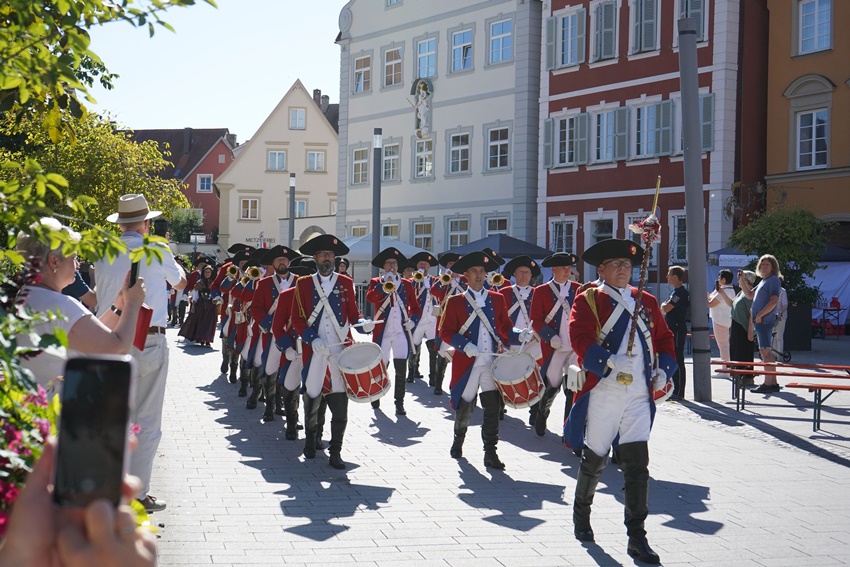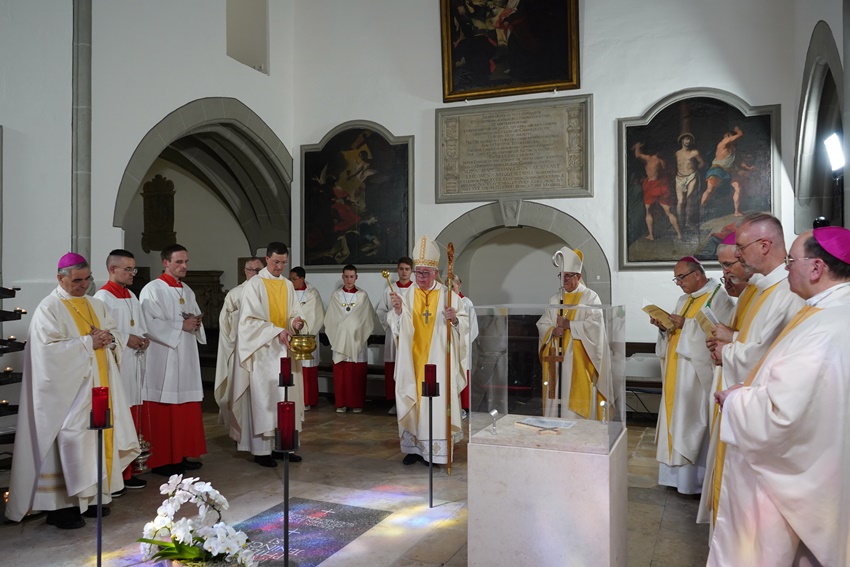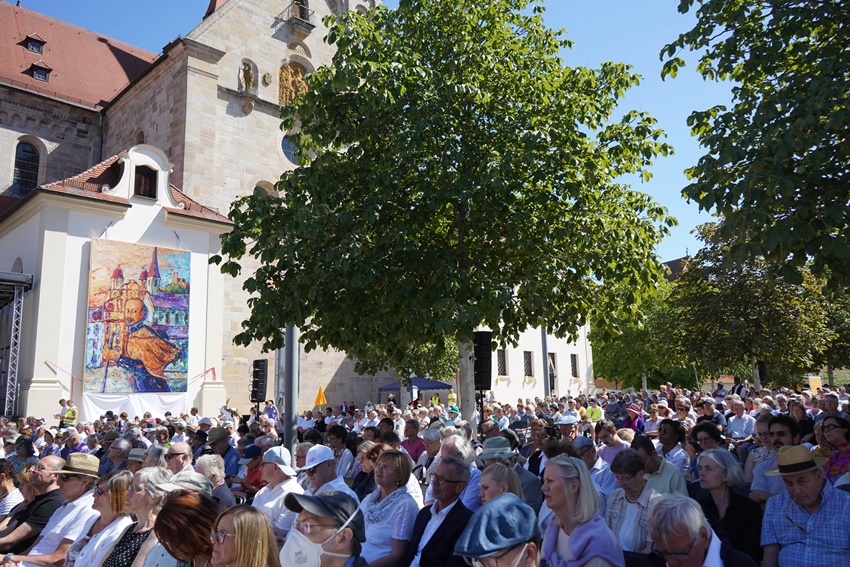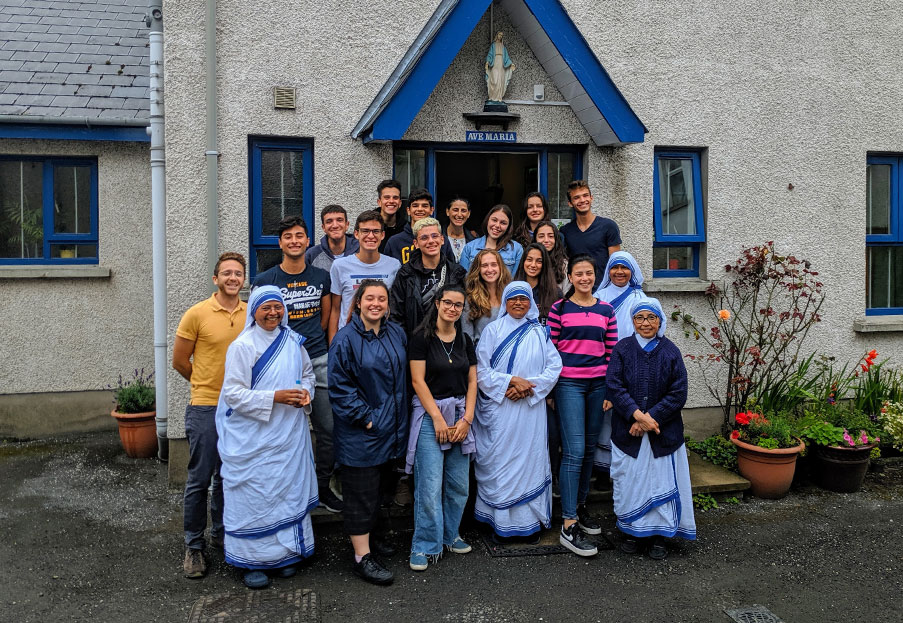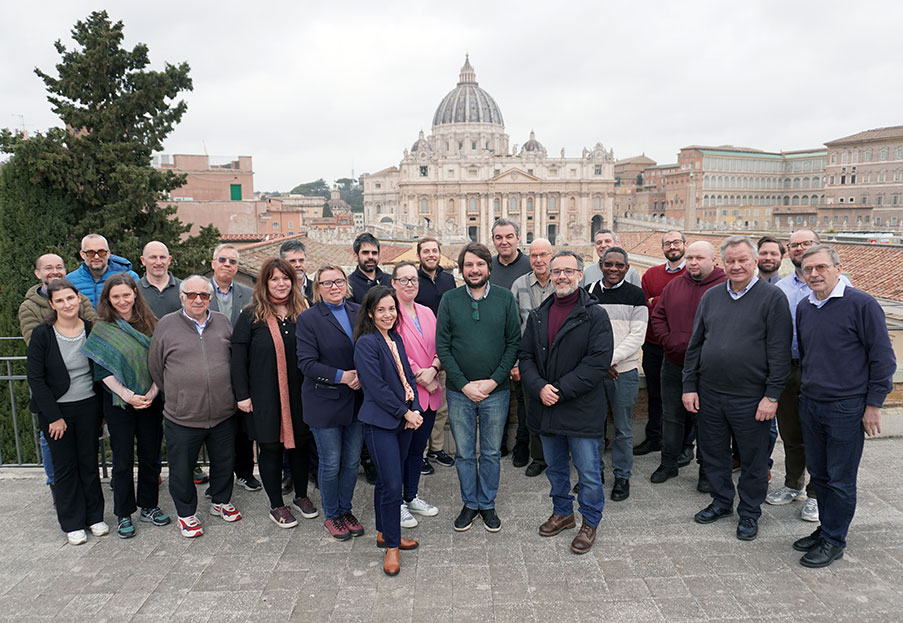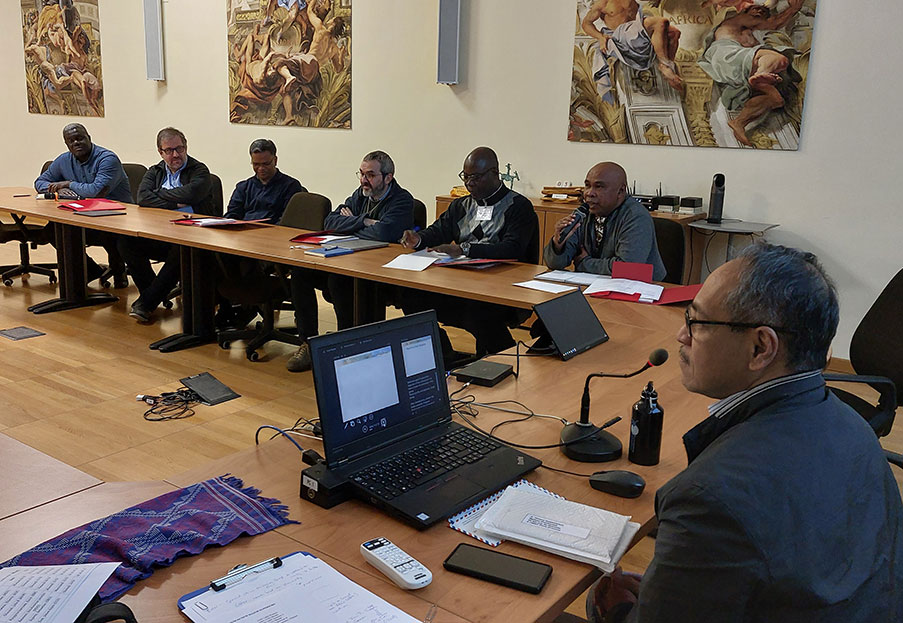The new Jesuit Blessed, Philipp Jeningen – What has he got to say to us?
By Anton Witwer, SJ, former Postulator of the Society of Jesus
When the Church beatifies a person who died more than 300 years, we always want to know why. What does the person still have to tell us? What is his message, and what does the beatification mean to people today? Every beatification should be desired by the Christian faithful and should contribute to the deepening of their life of faith.
The faithful’s desire was certainly evident in
the celebration of the beatification of Fr Philipp Jeningen, which was led by
the Archbishop of Luxembourg, Card. Jean-Claude Hollerich, SJ. A large number of
the faithful gathered for the celebration on the square in front of St Vitus
Basilica, where Fr Philipp is buried. The trait that best characterised the new
Blessed was summed up well by Card. Hollerich, who said in his homily that Fr
Philipp’s great joy was faith in God.
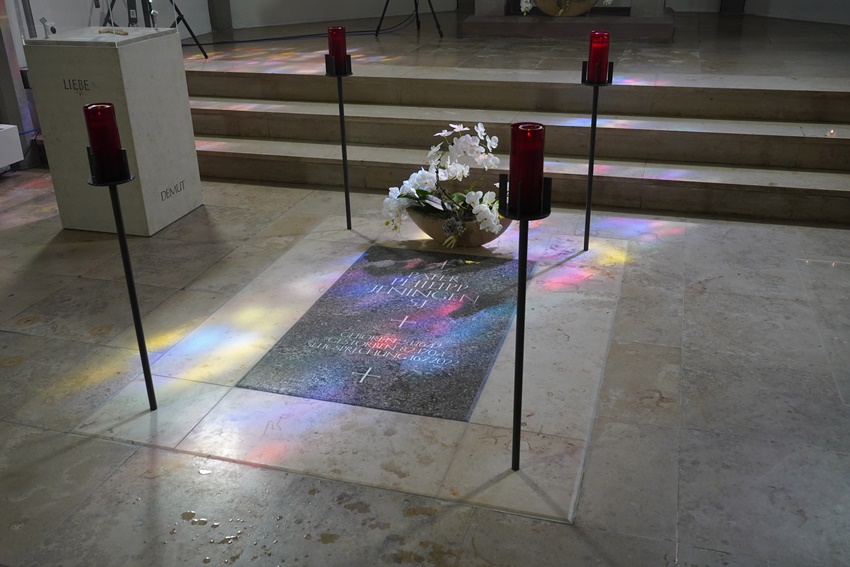
The significance of Blessed Philipp Jeningen for the people of today is found in his relationship with God, which shaped every aspect of his life: his witness of faith, his way of treating people, and his placing himself completely at their service. As a young man, his faith led to desire to become a Jesuit, though he had to wait until the age of 21 before entering the novitiate in Landsberg. The same faith prompted him to ask Fr General in numerous letters to be sent to the missions, and it was faith again that inspired him in his tireless pastoral service.
It was particularly in Ellwangen, from 1680
until his death on 8 February 1704, that Fr Philipp showed himself to be a true
'people's missionary'. Traveling through the villages of the region, he sought to
console people, reveal to them God’s love, and increase their hope and trust in
God. He lived the discipleship of the crucified Lord as a 'humble pilgrim' and so
was able to show others the way of faith and walk the path together with them.
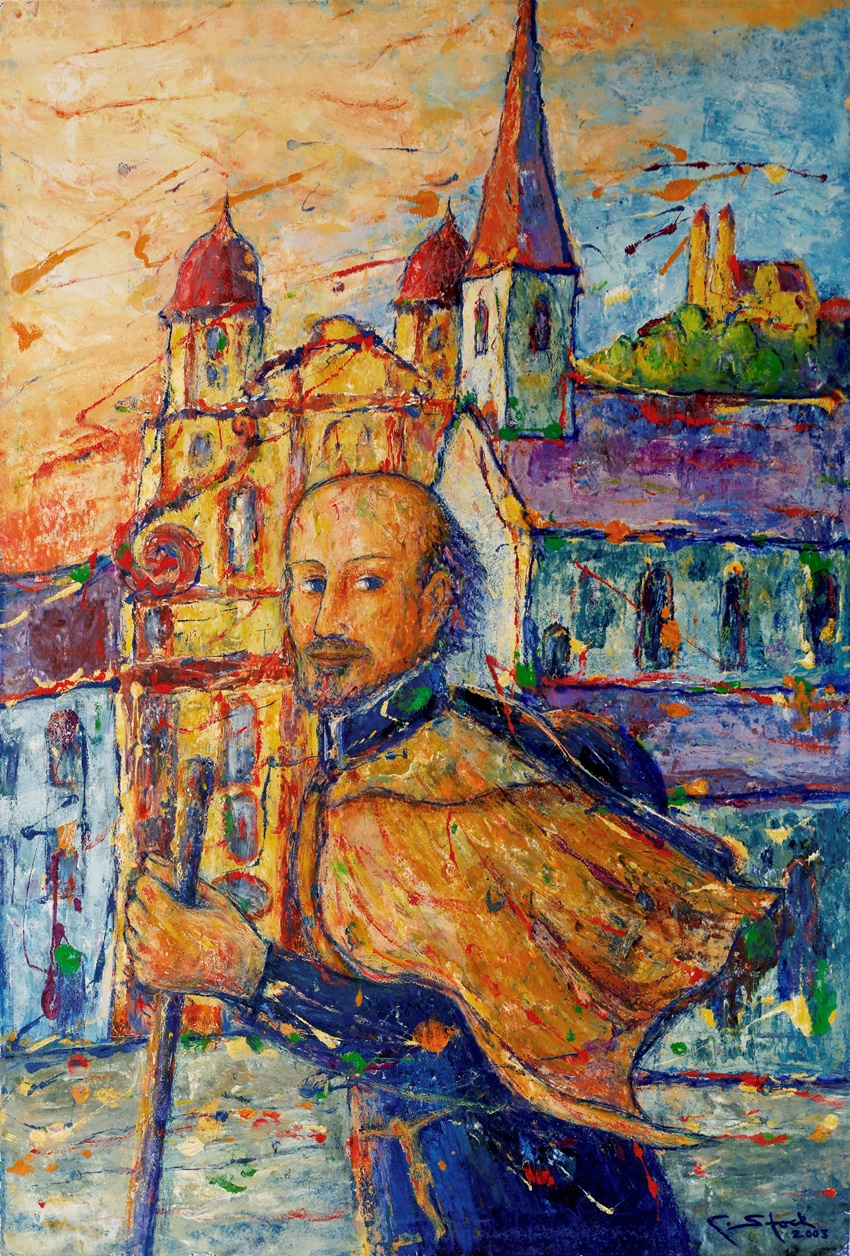
He was called 'the good Father Philipp' not only because he offered much help to the needy but also because people saw him as a 'man of prayer', as an intercessor for those who came to him with their needs. He did not do great things that gained him special fame, but he was much loved and regarded as 'the good Father Philipp' because of the simplicity of his life and his way of living the faith. Because of this, everyone could easily turn to him in their needs and ask for his prayers.
Veneration of the new Blessed began soon after
his death and even survived the suppression of the Society of Jesus. Thus the
image of the 'good Father Philipp' has remained alive among the people of
Ellwangen to this day, as shown by the graces received and recounted by many
people, especially the miracle attributed to his intercession and recognised by
the Church. The hearing process for the miracle highlighted not only the
special devotion of the family of the healed person for Blessed Philipp
Jeningen, but also the great veneration he enjoys throughout the Ellwangen
region. The special places of his veneration are his grave in the basilica of
Ellwangen and the Marian shrine on Mount Schönenberg, where he carried out his
pastoral work among pilgrims.
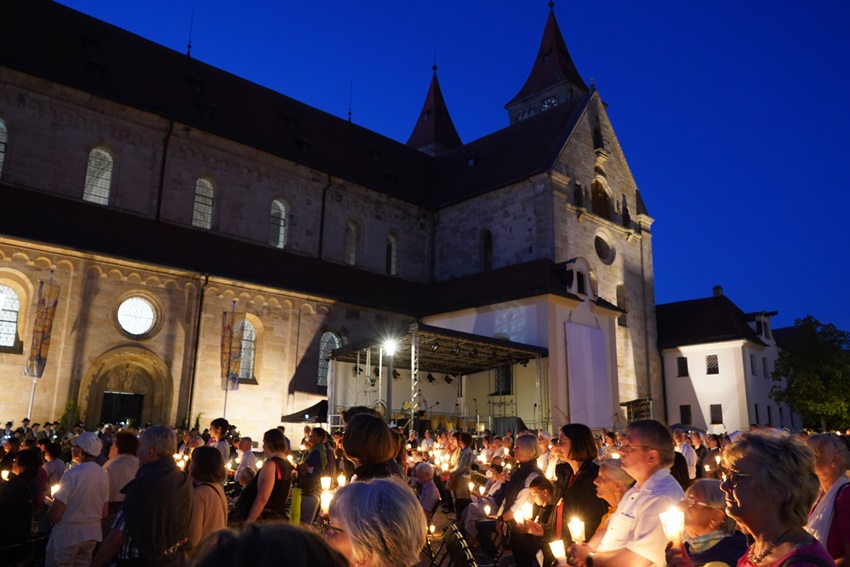
On the eve of the
beatification, the faithful held a "candlelight procession" from
Schönenberg to the basilica in Ellwangen, recalling the path that Blessed
Philipp Jeningen had walked so many times, praying for people in need. Bearing
their candles, they manifested how Fr Philipp had truly become a "beacon
of faith" for many people. The celebration of the beatification recalled
his example of faith and was a clear testimony that the light of the good Fr
Philipp still shines today: the example of his life illuminates the faith of
believers and encourages the desperate and suffering people who invoke his
intercession.
